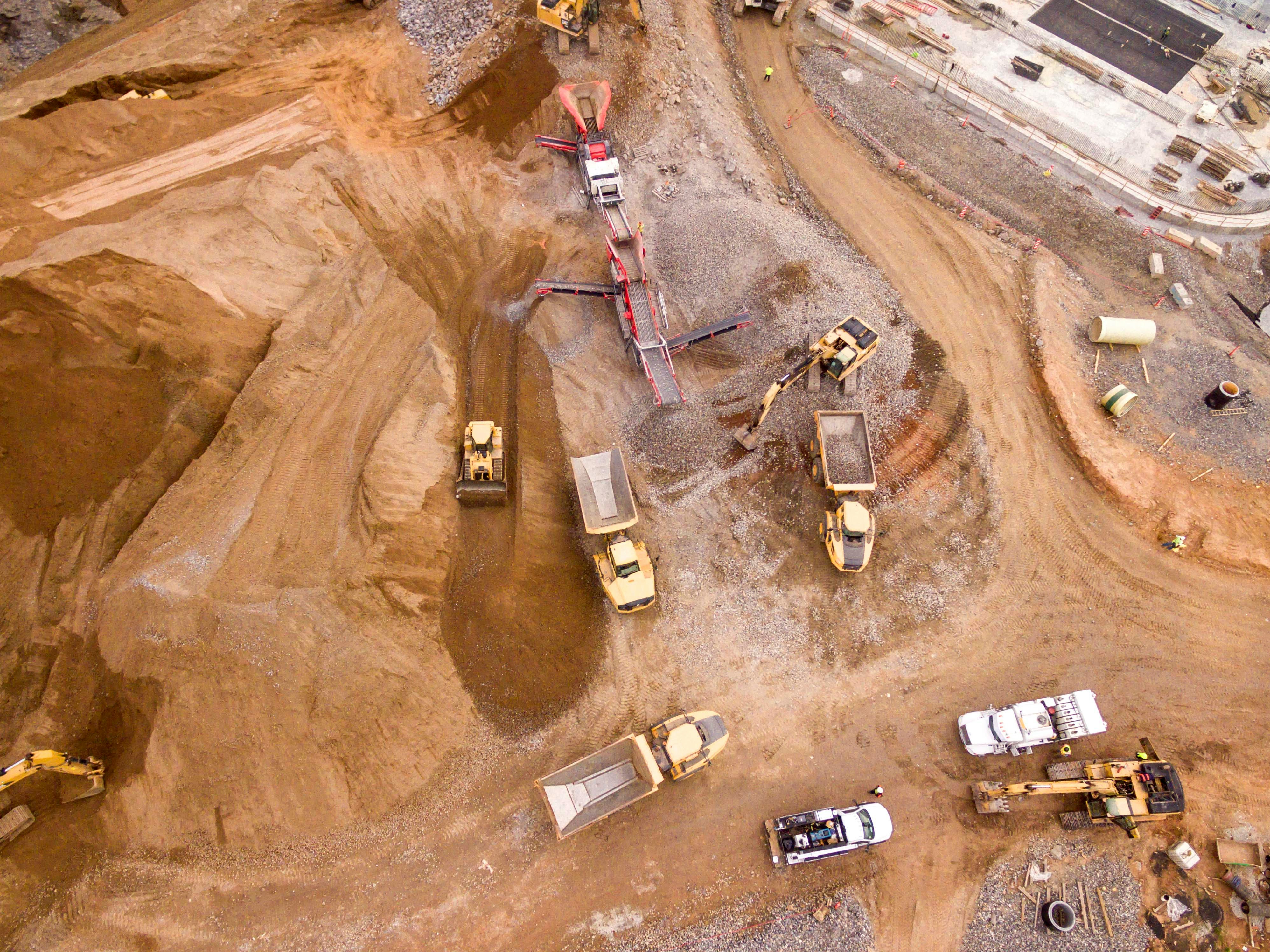Trade War Disruptions: How Tariffs Threaten The Global Flow Of Commodities

The ongoing global trade war, fueled by tariff policies introduced by the Trump administration, is significantly impacting industries that rely on international supply chains. Among the hardest-hit sectors is the commodity market, which depends on the free flow of raw materials such as metals, minerals, and energy resources. The introduction of tariffs on key industrial imports has created price volatility, increased production costs, and disrupted trade flows worldwide.
Anglo American CEO Duncan Wanblad has voiced concerns that these protectionist measures will have lasting consequences, warning that mining costs will rise for years to come. His remarks highlight the growing economic strain on companies and nations that rely on stable commodity markets to sustain industrial growth.
The Role of Commodities in Global Trade
Commodities are the foundation of global trade, serving as essential inputs for industries such as construction, manufacturing, energy, and technology.
- Metals and Minerals: Iron ore, copper, aluminum, and rare earth elements are crucial for infrastructure, transportation, and electronics.
- Energy Resources: Coal, natural gas, and crude oil power economies and are heavily traded across international borders.
- Agricultural Commodities: While not directly linked to mining, tariffs on fertilizers and machinery affect global food production.
The global supply chain for these resources depends on efficient trade routes, predictable pricing, and minimal trade barriers. Tariffs disrupt this system, making production more expensive and reducing competitiveness in international markets.
Tariffs and Their Impact on Commodity Markets
The Trump administration’s tariffs, particularly those on steel, aluminum, and other industrial inputs, have led to:
- Higher Production Costs: Mining companies face increased expenses for imported machinery, equipment, and refined metals.
- Supply Chain Disruptions: Tariffs create bottlenecks, forcing companies to seek alternative suppliers, which may not be as cost-effective.
- Price Volatility: Uncertainty in trade policies results in fluctuating commodity prices, making long-term planning difficult for businesses and investors.
These consequences are not limited to the United States. Tariff disputes with China, the European Union, and other major trading partners have resulted in retaliatory measures, further complicating global commodity flows.
Wanblad’s Warning and Industry Response
Duncan Wanblad, CEO of Anglo American, has warned that the effects of tariffs will extend beyond short-term disruptions, potentially reshaping the mining industry for years to come.
- Rising Operational Costs: Mining companies must absorb higher costs for raw materials, leading to increased prices for end consumers.
- Investment Uncertainty: Long-term projects may be delayed or reconsidered due to unpredictable trade conditions.
- Shift in Supply Chains: Companies may seek alternative markets or rely on domestic production, though this is not always feasible for specialized commodities.
In response, some mining firms are diversifying supply sources, renegotiating contracts, and lobbying for policy changes to mitigate financial strain.
Broader Economic and Geopolitical Implications
The trade war extends beyond the mining industry, influencing global economic stability and international relations.
- US-China Trade Tensions: China, a major buyer of global commodities, has responded with its own tariffs, affecting US exports of metals, agricultural products, and energy.
- EU and Emerging Markets: European and emerging economies, reliant on commodity imports and exports, face uncertainty as trade barriers disrupt business operations.
- Inflation and Consumer Impact: Rising commodity costs trickle down to consumers, increasing prices for goods such as cars, electronics, and construction materials.
A prolonged trade war risks weakening economic growth, increasing inflation, and reducing global trade efficiency.
Future Outlook for Commodity Trade
Looking ahead, the global commodity market may evolve in several ways:
- Potential Trade Agreements: Diplomatic negotiations may lead to revised trade policies, easing tariff burdens.
- Market Diversification: Companies may expand into new regions to reduce reliance on traditional trade partners.
- Technological Innovations: Advances in mining and production efficiency could offset some cost increases caused by tariffs.
However, if trade barriers persist, the mining and commodity sectors must adapt to a more fragmented global market, requiring strategic planning to maintain profitability.
Conclusion
The impact of tariffs on commodity markets extends beyond immediate cost increases; it threatens the long-term stability of global trade networks. The warnings from Anglo American CEO Duncan Wanblad highlight the need for strategic adjustments within the mining industry to navigate rising costs and shifting trade policies.
As nations continue to negotiate trade agreements, businesses and investors must remain agile, anticipating further disruptions and exploring alternative strategies. Whether through policy reform or market adaptation, the future of global commodity trade will depend on how industries and governments respond to these evolving challenges.
Author: Gerardine Lucero
Copper's Comeback: Inside BHP And Lundin's Argentine Asset Acquisition
Copper, often dubbed "the metal of electrification," is experiencing a resurgence in demand due to its critical role in ... Read more
Revitalizing Commodities: How Clean Energy Is Breathing New Life Into A Stagnant Market
The commodities market, traditionally a cornerstone of investment portfolios, has experienced a decade of stagnation. Ho... Read more
European Airports Disrupted By Escalating Climate Protests
Climate activists have escalated their protests at European airports, blocking runways and causing flight disruptions in... Read more
Hungary's Russian Oil Dilemma: Why Brussels Is Cautious In Offering Support
Hungary's reliance on Russian oil has led it to seek support from Brussels to ensure continued access to this crucial en... Read more
Unveiling China's Secret Commodity Stockpiles: What Lies Ahead?
Xi Jinping's extensive reserves of grain, natural gas, and oil hint at future challenges.In a move shrouded in secrecy, ... Read more
Copper Miners Brace For Industry Overhaul As End Users Seek Direct Deals
The copper mining industry is bracing for a significant overhaul as end users, including cable manufacturers and car com... Read more

